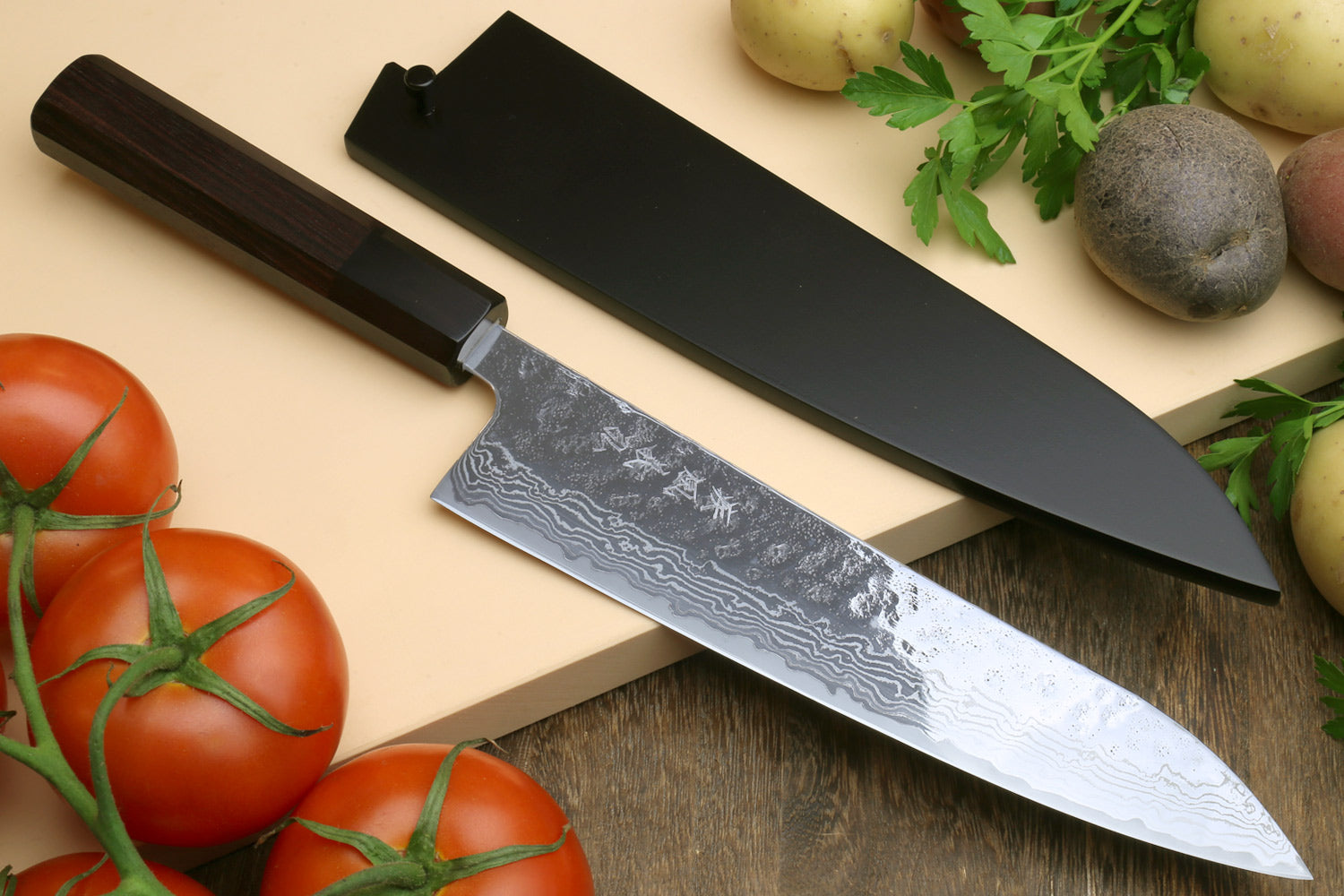In the world of culinary craftsmanship, the Damascus bread knife stands out as not just a tool, but a testament to elegance and precision. For kitchen professionals, understanding the intricacies of this knife is paramount, given its unique blend of artistry and function. This article delves into the essence of the Damascus bread knife, exploring its features, usage, and why it is a must-have for serious culinary artists.

The Mystique of Damascus Steel
Known for its intricate patterns and superior strength, Damascus steel has a storied past that dates back centuries. Its distinctive wavy designs are not just for aesthetics; they represent a traditional craft passed through generations. To truly appreciate the Damascus bread knife, one must explore the history of Damascus steel and its implementation in modern kitchen tools.
Why Choose a Damascus Bread Knife?
Apart from its striking aesthetic, the Damascus bread knife is celebrated for its performance. The layered construction of the blade offers unparalleled sharpness and durability, making it ideal for slicing through bread with precision. But what truly sets it apart is its ability to maintain its sharpness over extended use.
For chefs and kitchen professionals, having a reliable knife such as the Damascus carving knife enhances efficiency in the kitchen, reducing the effort needed to achieve perfect slices every time.
Comparing Damascus with Other Knife Types
In the vast array of kitchen knives, a common deliberation involves choosing between traditional steel knives and modern Damascus variants. While both serve fundamental purposes, the conceptual distinction lies in the craftsmanship and performance of the Damascus steel.
Unlike regular kitchen blades, the Damascus utility knife offers a blend of multiple steel layers, providing enhanced durability and style. This makes it an attractive option for professionals who value both aesthetic appeal and cutting precision.
Maintenance and Longevity
One of the defining traits of the Damascus bread knife is its longevity. However, like all tools, it requires care. Regular honing is recommended to maintain its edge, alongside proper cleaning to preserve the blade patterns. For those new to this culinary marvel, visiting resources like the damascus utility knife guide can provide beneficial insights on maintenance.
Incorporating Damascus Blades in Your Kitchen
For culinary professionals seeking to elevate their kitchen's functionality and style, investing in a Damascus bread knife could be a transformative decision. Its capability to handle the delicate task of slicing bread without marring the loaf is unlike generic blades, bringing a sense of professionalism and finesse to every dish.
Mastering this tool will undoubtedly refine your kitchen prowess, and whether you're considering the 8-inch Damascus chef knife or another variant, understanding its features and upkeep is crucial to maximizing its potential.
Conclusion
Ultimately, the Damascus bread knife is more than just a component of culinary art; it is an instrument that merges function with tradition. Embraced by kitchen professionals around the globe, it represents both a commitment to excellence and an appreciation of fine craftsmanship.
With its exceptional characteristics, the Damascus bread knife stands as an indispensable ally for those who pursue culinary perfection. Understanding and utilizing this tool effectively can transform an ordinary cooking experience into an extraordinary culinary journey.

FAQ
Q: Why is Damascus steel considered superior for bread knives?
A: Damascus steel is lauded for its mix of durability, sharpness, and aesthetic appeal, which are crucial for crafting high-quality bread knives.
Q: How do I maintain the edge of my Damascus bread knife?
A: Regular honing and proper storage are essential to maintaining the sharpness and longevity of the blade.
Q: Are Damascus bread knives suitable for daily use?
A: Yes, they are designed for frequent use, offering durability and exceptional performance ideal for a professional kitchen environment.
This article contains affiliate links. We may earn a commission at no extra cost to you.


























